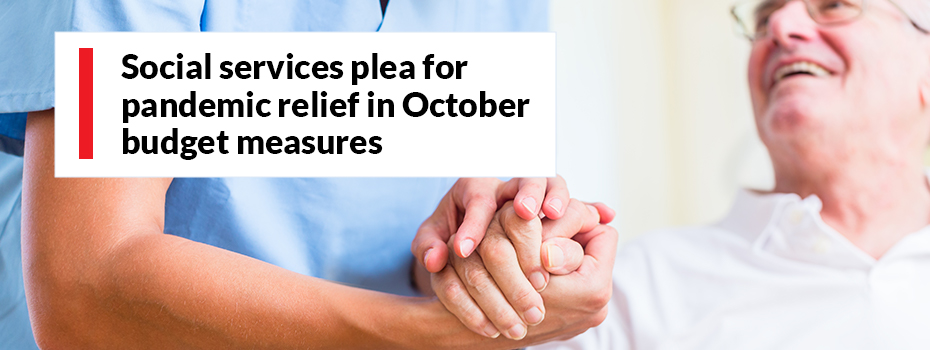Social services plea for pandemic relief in October budget measures

As JobKeeper payment rates fall from 28 September, and mutual obligations return for JobSeeker recipients, social services organisations will be looking to the 6 October Budget for signs that the Government might avoid harsh austerity measures to cut its way clear of the COVID crisis.
From 28 September, the JobKeeper rate will move to a two-tiered system, dropping from $1500 per fortnight across the board to $1200 for full-time employees and $750 for part-timers and casuals who had worked less than 20 hours per week. Further cuts to the payment are scheduled for the new year, with payments dropping to $1000 and $650 per fortnight. Social security organisations are concerned that these cuts risk putting more Australians into poverty and homelessness.
In a joint 2020-21 Pre-Budget Submission, the Brotherhood of St Laurence (BSL), Centre for Excellence in Child and Family Welfare (the Centre), Council of Single Mothers and their Children (CSMC) and Grandparents Victoria/Grandparents Australia (GPV/GPA) focused on social security reform as a key investment in social cohesion and economic recovery. The group has urged the Government to prevent high levels of poverty and accompanying social harms by: maintaining the $550 Coronavirus Supplement until the crisis is over, and employment returns to pre-COVID levels, while giving a “permanent and adequate increase” to the base rate of social security payments. They also called for voluntary employment support, career counselling and free childcare to help those seeking employment, with any mutual obligations to be “fair and proportionate”, without financial penalties that put already vulnerable people, including children, at greater risk.
Economic Justice Australia (EJA) likewise called for permanent increases to JobSeeker payments and Youth Allowance, with corresponding increases in the age pension, and recommended that the Coronavirus Supplement be extended until JobSeeker is increased to an adequate level, i.e. above the poverty line. They have also recommended a sweeping expansion of Special Benefit eligibility to cover students, as well as working and bridging visa holders. Increasing risk and incidence of domestic violence was another concern raised by EJA, who called for increased social supports for victims.
Affordable housing is another top of mind issue for the social services sector. The Community Housing Industry Association (CHIA) said the pandemic has exposed the consequences of a housing system that fails to meet the needs of the bottom 40% of society. CHIA called on the Federal Government to support state and territory initiatives to rehouse formerly homeless households, temporarily housed during the pandemic by designating funds for head leasing of private rental units. Furthermore, CHIA proposed a model of investment in social housing as essential infrastructure, whereby governments could capitalise on low interest rates to fund a Social Housing Acceleration Program (SHARP) to rapidly deliver 30,000 social rental housing units. Such a program would have the secondary benefit of countering a predicted severe contraction in residential construction in 2021-22, as a result of decreased migration and financial stresses.
Homelessness Australia echoed support for the SHARP program, saying it would not only provide 30,000 homes over four years, but also increase GDP by $5.8 to $6.7 billion. Increasing the supply of secure, affordable housing would lift people out of the cycle of crisis accommodation and boost their ability to engage in work or education. With unemployment rates rising and the recession continuing to bite, Homelessness Australia has asked the Government to reverse its impending cuts to income support payments, to prevent a surge in the numbers of people at risk of losing their homes. To avoid the spectre of mass evictions once the current moratorium ends, Homelessness Australia also called on the Government to increase Commonwealth Rent Assistance (CRA) by 50%, with a projected cost of $1.9 billion in 2021-22.
National Seniors Australia emphasised the critical role of retirees in the economy, such as the ‘grey nomads’ who support manufacturing and service industries in cities, as well as rural, regional and remote areas. They called on the Government to play a role in stimulating retiree spending by lowering the Pension Loans Scheme interest rate and providing safe investment opportunities for older Australians. With the Aged Care Royal Commission still underway, National Seniors called for improvements to home care services, support for the construction of seniors-friendly accessible homes, and for increased transparency of residential care providers.
Seniors across the country will no doubt be disappointed at the Government’s recent announcement that pensions would not be indexed in September, the first time they have remained static in 25 years. Shadow Minister for Families and Social Services, Linda Burney, said over 2.5 million age pensioners would be missing out on an expected increase in payments at a time when they are facing rising health, dental, energy and grocery bills.
To access original media releases, and details around submissions used as examples in this article login to Capital Monitor at: www.capitalmonitor.com.au
 LexisNexis
LexisNexis